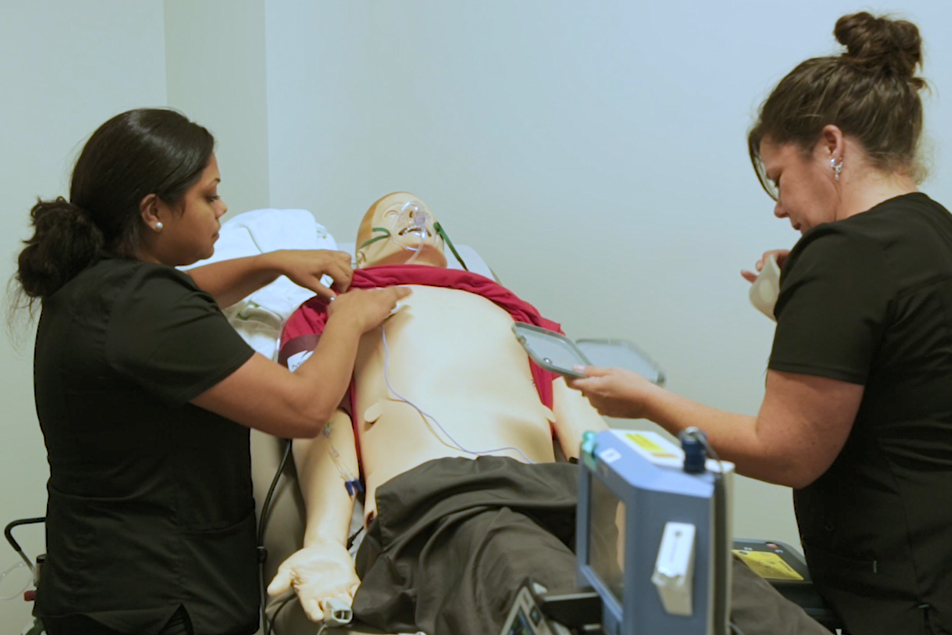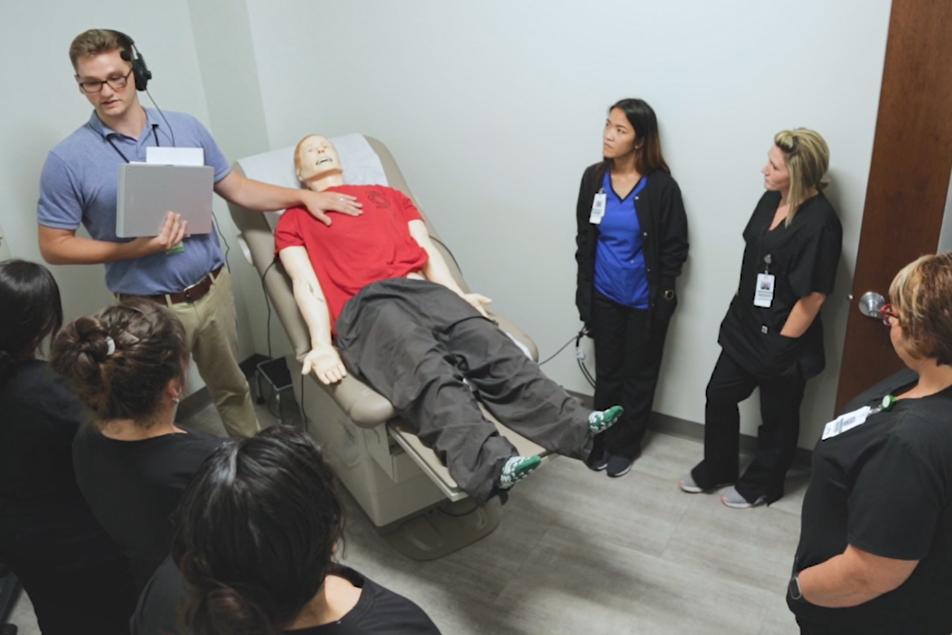This content was provided by Adam Fischer, simulation lab supervisor.
The Parkview Simulation team has 4-6 simulation spaces and debriefing rooms at the Parkview Education Center.
The team facilitates various exercises utilized for education simulation classes, AHA classes, PPG New Hire Orientation, nursing annual competencies, provides pre-hospital simulations and simulation/debriefing classes.

The dedicated space and simulation environment allows staff to practice high risk/low volume situations without posing a risk to actual patients. Offerings vary from a code blue, to dealing with confrontational patients and visitors. The focus varies based on the type of staff participating in the simulation.
Most departments at Parkview utilize simulation services. Last year, the Sim Lab served just under 6,000 participants. This year, the team has already served more than 6,000 participants.
AHA classes are required for coworkers who work in most direct patient care areas. The Simulation team provides simulation and debriefing training to educators, so they can design curriculum to work with their staff.

The team also works heavily with EMS and Nursing teams throughout the Parkview Health system. Through the Parkview Simulation program, we are able to maintain medical certifications and learn best practices in a safe, effective manner. The training that providers receive at the Parkview Education Center prepares them to deal with potential cases in a controlled environment, so when the staff interacts with patients they will have practiced in a realistic situation. Parkview patients benefit from caregivers sharpening these skills and strengthening their response muscles.
The simulation space at the Parkview Education Center was developed to ensure that staff get the training they need to minimize errors and provide patients with the best care team possible. By practicing these high risk/low volume situations, we equip our teams with the tools they need to face any emergency situation with confidence.